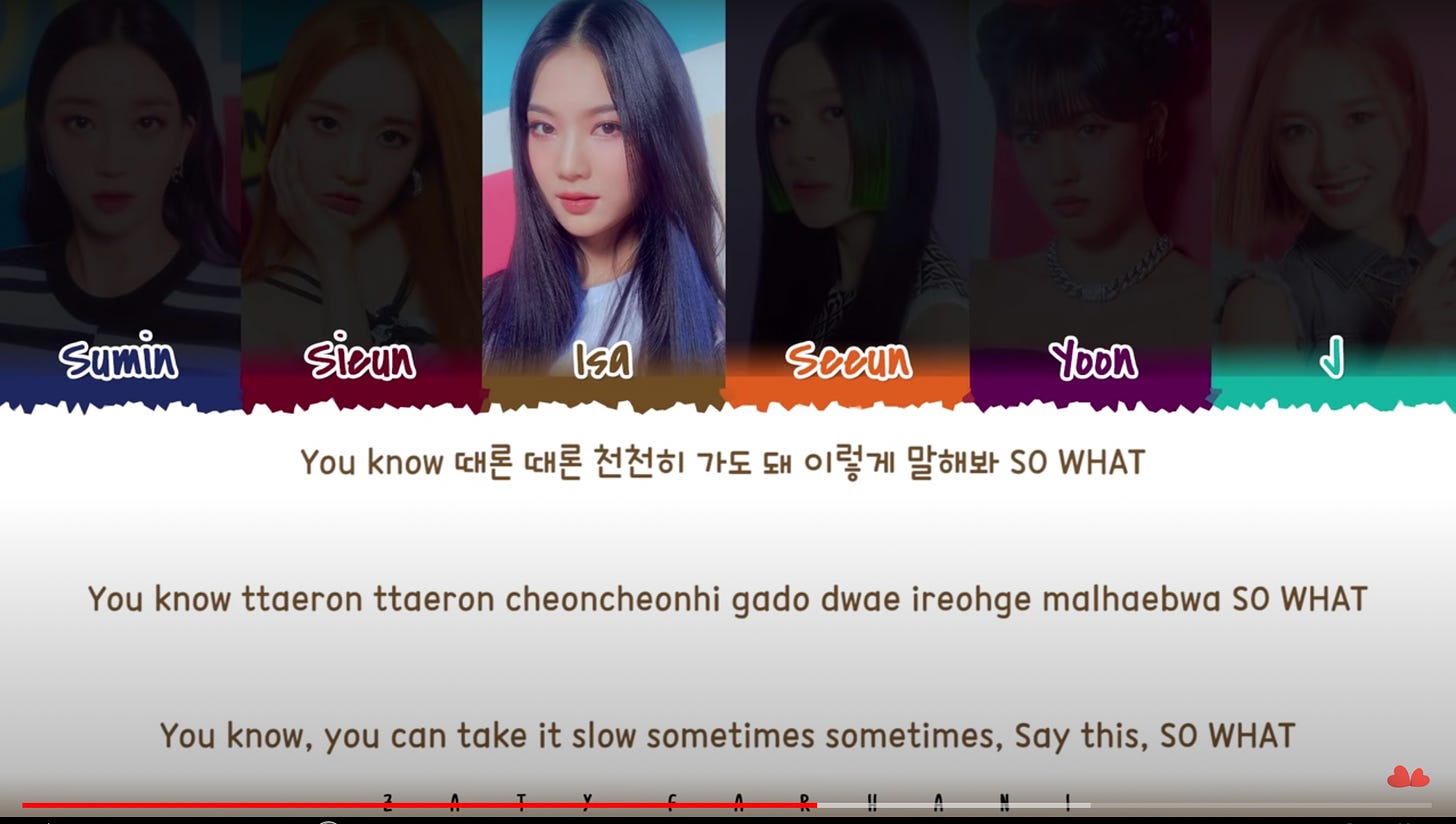Hello, greetings, salutations.
Today I offer you green tea and nectarines, cut up and placed into a bowl.
If you have made it here, thank you. I am delighted to have you here. Truly.
Welcome <3
I feel like a first issue necessitates a short introduction, so I guess I can only begin by thanking you, again, for reading. I’m still finding my way around many things, including waking up every day and knowing how to exist. I guess writing is one way to do that, in that it both fills time and affirms my thoughts and presnce; allowing myself to be read is an added dimension. I am determined not to dwell on how I am being perceived, the ways in which I wander around people’s minds. I have realised that I do enjoy writing, which is somewhat startling. I did write another newsletter, briefly, which begun during the long Melbourne lockdown of 2020 and grew increasingly less frequent in accordance with my academic obligations. If you have returned, welcome back. I love you. I think that I will send this newsletter out on a Friday, except when it goes out in the early hours of Saturday or what have you. But I do like the idea of routine. Friday. The fifth day of the week, if you believe that the week believes on a Monday. A nice day. Good vibes. Reminds me of the colour green. Like a kind of dark, foresty green.
I think that I have a problem with looking backwards. I like to dissect the rearview, and perhaps to create anxieties about the future. I don’t think I’m one who anticipates; too much uncertainty. I prefer to catalogue what I read and listen to and think, as if to orient against the slippages of time. Months and seasons become rhythms and cycles as the only way to understand that time has passed. January, again. And then occasionally I look back and realise that I have changed or succeeded in ways that I could never have envisioned. I guess that is life, and being in the world.
This newsletter is definitely an indulgence, but upon further reflection I realised that I am also sharing, that this isn’t necessarily a one-sided activity which others are gracefully tolerating. It’s a process, I think, knowing how to share and be received; exist and be seen. Does that make sense? I do share book thoughts, music, updates, like a kind of monthly tea party. Mostly, I would be happy if my streams-of-consciousness can bring some delight.
My Year of Rest and Toxic Girl Bestfriendship
I recently finished My Year of Rest and Relaxation, and I have thoughts. Rest and Relaxation is the 2018 novel by Otessa Moshfegh seems inescapable in conversations of ‘contemporary’ fiction, although it is set at the dawn of the new millennium in 2000/2001. (I love using that word, dawn, to describe time. We’re at the dawn of 2022). Moshfegh’s satirical take on wealth and privilege is compelling, if not entirely enjoyable. This book isn’t intended to be enjoyable; the narrator’s voice is grating until the story takes a downward swing into the truly horrifying, before returning to the almost-absurd and ending abruptly. The train-crash metaphor is apt, an event where you truly cannot look away.
In a novel where the premise is the unnamed narrator’s attempt to sleep life away, a lot of the content itself is repetitive, even banal. The narrator wakes up, she goes back to sleep. She tells us her parents died; she recalls her life leading up to the decision to sleep; she narrates her psychiatry sessions, her walks to the bodega; she tells us how her parents died; she is repeatedly hostile towards her only friend, Reva; she recalls her older, on-again, off-again, ex-boyfriend, Trevor; she recalls her home life. She reminds us at every turn that she is pretty: “I was tall and thin and blond and pretty and young”, “I was blond and thin and pretty — that’s what people noticed”, “It did comfort me to see that I was still pretty, still blond and tall and thin”, “I still looked pretty”.
I needed a way out of this — the bathroom, the pills, the sleeplessness, the failed, stupid life.
Partway through Rest and Relaxation, I finished Season 1 of Succession (shoutout Jordan). I was struck by how both pieces of media present to us Rich White People (in New York) and suggest that they have problems like the rest of us, even relatable problems, whilst at the same time the characters are repeatedly exposed as repulsive, unlikeable. The unnamed narrator of Rest and Relaxation is experiencing genuine grief, complicated by childhood trauma, and punctuated by what she perceives as the monotony of her life. Of course, she focuses on the issue of her day-to-day life, and decides to shut down for a while. The fact that she can afford to sleep through her days (literally afford to, because she has the finances, and figuratively, because she lacks responsibilities OR a support network) places her in a specific sphere of existence. It’s the same world that the traumatised potential-heir-to-a-media-kingdom Roy children inhabit. Like, Kendall Roy could realistically decide to locate a dodgy psychiatrist to prescribe him pills so that he could shut himself from the world to cope (Stewy “Just Take The Money And Get Out” Hosseini would be Reva in this situation). These characters are repuslive because of the attitudes and the things that they can get away with, in turn shaped by how wealth allows them to move through the world. The media itself is like a loop of making characters appear sympathetic then taking that sympathy away again. The only difference is that Rest and Relaxation places us directly in this woman’s head, and it is unbearable to be there.
There’s no thesis or anything to my discussion, but the most compelling part of this book for me is the narrator’s friendship with Reva. My favourite pair of toxic girl best friends will probably always be Laila and Harriet from Noel Streatfeild’s children’s book White Boots. That dynamic is co-dependent and prone to jealousy from both girls, and I believe Laila is described as a ‘horrid child’, though their friendship ends well. I simply enjoy interesting friendship dynamics <3 Reva and the narrator’s friendship is complex, and almost always dysfunctional. Just as the narrator overvalues her own physical appearance, she is fixated on Reva’s eating disorder, using it to diminish Reva in her own mind at every turn (despite admitting in one instance that Reva, too, is ‘pretty’). The narrator uses Reva to feel superior. The truth is that the narrator doesn’t know how to handle genuine care:
“Oh, shut up, Reva.”
“I love you”
Maybe she did, and that’s why I hated her.
Nevertheless, it is the idea that our connections to each other matter, that the people closest to us will stay with us in their own ways, a peculiar quirk of the brain/heart. “Despite all the sleep and forgetting, I still knew her number by heart, and recognized the date on the calendar as her birthday.” (The Social Network: I was your only friend. You had one friend). At times, the narrator expresses despair at the fact that Reva might abandon her. Still, she resents Reva’s attempts to help her, and this resentment is part of a larger resistance to the work that goes into personal and emotional growth, instead content to abuse psychiatry and pharmacy to turn away from her problems. Reva is constantly trying to prove herself to the world, constantly caring too much about everything and the narrator whilst the narrator is trying to hide herself away. Reva’s presence is disruptive to the narrator wallowing in her sorrows and so she intrudes into the narrative, which would be significantly different without the push-and-pull of Reva-and-the-narrator. One turning point comes when she blacks out and ends up on a train to Long Island at Reva’s request, and another comes when Reva first tries one of her pills, then steals them all as an intervention. Even the lack of an emotionally resonant ending seems to tie into the fact that she never finds resolution with Reva. Shad @utenatheworld compared Reva and the narrator to Greg and Rowley, which embodies their constant clarity of thought.
Textually, the narrator does experience growth. At least, she claims that she has, when she finally ventures into the world again.
Pain is not the only touchstone for growth, I said to myself. My sleep had worked. I was soft and calm and felt things. This was good. This was my life now.
This series of affirmations, particularly, “My sleep had worked,” betrays the fact that the narrator has simply been convincing herself that this was the only way. As a result, it must have worked. Maybe if she had taken a walk to begin with, she would have realised the same beauty she absorbs at this late stage. Then again, maybe not. There has been a shift in mindset but none of the work behind it. I think that if Moshfegh had wanted a story about emotional growth, it would have to be a very different book. In reality, nobody could take so many pills without dying, or lose six months and find themselves realigned with the world, having worked through none of the underlying trauma. This is probably my main quarrel with the book, and it is a rather large one. I admire the text, but I didn’t enjoy it, and I find myself wondering what the audience is supposed to glean from an ending which, again, comes as the sudden moment of impact during a train crash, though the narrator survives. I digress.
I do want to touch briefly on the ending, as in the final lines. If you plan to read My Year of Rest and Relaxation and have not, I recommend skipping to the next section, simply because the novel works based on how Moshfegh entices the audience to keep reading; this would be undercut by knowing how the ending plays out. I did read the final pages whilst only halfway through, so do what I say and not what I do, unless you don’t want to do what I say.
The novel ends:
Each time I see the woman leap of the Seventy-eighth floor of the North Tower —one high-heeled shoe slipping off and hovering up over her, the other stuck on her foot as though it were too small, her blouse untucked, hair flailing, limbs stiff as she plummets down, one arm raised, like a dive into a summer lake —I am overcome by awe, not because she looks like Reva, and I think it’s her, almost exactly her, and not because Reva and I had been friends, or because I’ll never see her again, but because she is beautiful. There she is, a human being, diving into the unknown, and she is wide awake.
The spectre of 9/11 was probably more prominent to me simply because I knew that event would be written into the ending. It was more of an awareness than something which diminished or leant perspective to the narrator’s problems, though the implication here is that she has gained perspective, at least to realise the virtue of being awake and alive. I have to wonder whether this was meant to be a plausible reawakening, or commentary on the way that 9/11 has been narrativised in white American history into a monumentous event (to justify decades of war), or if it simply an intrusion into the text and the narrator’s life, an intrusion much bigger than Reva which brings the text to a halt. Certainly, it could be be read in any of these ways and still feel ineffective and unnecessary, especially because the narrator remains static except in her own attitudes. The book could have been two pages shorter, in that case. It is significant that the narrator does not linger upon the loss of her only friend, who she had called on her birthday and planned to meet again. Instead, she chooses to think that the woman in the footage is Reva, and transforms ‘Reva’ into a symbol around which a new outlook on life seems to blossom. It’s both stunningly self-absorbed and an act of profound love, acknowldeging Reva as her best friend all whilst romanticising her final moments. That same contradiction of the narrator being awful and relatable at once (mostly awful).
Much more will probably be said about My Year of Rest and Relaxation and its threads of capitalism, art, psychiatry/trauma/grief, even identity (the way the narrator remains unnamed, featureless except for the aforementioned descriptors of tall, thin, pretty, blond, wanting to escape her life and wake up, reborn, in which case she succeeds and moves towards something other than utter misery). To cite Shad once more: “this is truly american psycho for women”. My friend George has a review which compares My Year of Rest and Relaxation to American Psycho and other Ellisian works in more detail and generally contains some interesting analysis. Maybe if the narrator listened to ‘Oh No!’ by Marina instead. This is my advice to many fictional characters with problems.
Slowing Down
My song of the moment is ‘Good Behaviour’ by Linying: everybody love my good behaviour / everybody love me softer, sweeter / but you don’t really ask for either / you only ask that I believe ya. Linying is releasing an album later this month which is extremely exciting. Otherwise, I have been listening to a lot of kpop over the past few days, ranging from (unfortunately) Bigbang’s ‘Lies’ to Red Velvet’s greatest hits to Stayc’s ‘ASAP’ and ‘Stereotype’. Kpop is lovely because so many songs and videos are familiar to me at this point, which clicks well with my brain. And I’ve been getting into Stayc who are funky fresh and brilliant and charting high in my bedroom <3 A playlist for January, which will continue to be updated. A work-in-progress! I broke free on a Saturday morning! (The twin high maintenance machines are me and Jordan).
& because it is still the beginning of the solar year and the end of the lunar year, my resolutions which I have tried to keep simple:
To this, I will add that I want to keep this list of resolutions to look back on next year, and the next. If I do make them, I usually delete them, but I should grow used to the whole idea of being comfortable with existing, which means confronting myself via text, and so on. A movement away from ‘when there’s nothing left to burn, you’ve got to set yourself on fire’ (Stars) & towards ‘where’s the fire, what’s the hurry about, you better cool it down before you burn it out’ (Billy Joel).
Actually: try to slow down. I’m listening to ‘Vienna’ by Billy Joel now, and I would like to take it to heart. It’s alright, you can afford to lose a day or two.
I don’t know what the future will bring. For the first time in 17 years, it is January and I don’t really know what my plans are.I’ve floated the idea of applying for mid-year intake for the degree I would like to do and essentially taking a semester off, to apply for jobs and I guess just rest. I don’t have pills to allow me to stay awake for only forty hours until June but I have a place to live and savings which keep diminishing but still exist, and then I can take my time. I should consider what I want and feel grateful rather than guilty for things, I think. I don’t like uncertainty but carefully, I am going to (learn to) live.
Before I leave, I turn briefly to Melina Marchetta’s Saving Francesca, technically my first book of the year. I read it on New Year’s Eve 2021, ABC’s usual NYE concert programming humming in the background. I reached the climax as the clock ticked steadily towards midnight, and finished in the first minutes of the new year, once the fireworks had come and gone, streaking over Sydney Harbour to announce another ending/beginning. This was perhaps my fourth time reading the book over the past five or six years, and the characters feel like old friends. What struck me this time, lying around the house in 30-something degree heat, was the sensation that I have well and truly left high school behind. Simple to say, yet it startled me. The Piper’s Son and The Place on Dalhousie feature characters introduced in this book as they grow up and navigate life, and I too have moved on from teenaghead into my 20s; Saving Francesca now feels like a beloved capsule into a different, distant time.
Unfortunately, this ended up being like three newsletters at once and also appraoching the mail size limit, before emails start being cut off. That means that I have said a lot, and I probably will not proofread it properly.
On that note, thank you again. Wherever you are, I hope you and your loved ones are coping with the pandemic, as best as you can.
Take care,
Joanne





![[Verse 2] Slow down, you're doin' fine / You can't be everything you wanna be / Before your time [Verse 2] Slow down, you're doin' fine / You can't be everything you wanna be / Before your time](https://substackcdn.com/image/fetch/w_1456,c_limit,f_auto,q_auto:good,fl_progressive:steep/https%3A%2F%2Fbucketeer-e05bbc84-baa3-437e-9518-adb32be77984.s3.amazonaws.com%2Fpublic%2Fimages%2F0af8c410-4229-4def-b63b-7a75cf74e6e4_680x262.png)

![[Chorus] / Holy are ghosts and girls from school / My phantom vibrations / And the sweet believing superstitious versions of myself / I never got to say goodbye [Chorus] / Holy are ghosts and girls from school / My phantom vibrations / And the sweet believing superstitious versions of myself / I never got to say goodbye](https://substackcdn.com/image/fetch/w_1456,c_limit,f_auto,q_auto:good,fl_progressive:steep/https%3A%2F%2Fbucketeer-e05bbc84-baa3-437e-9518-adb32be77984.s3.amazonaws.com%2Fpublic%2Fimages%2Ffdc6cefa-c835-40b9-9733-d602c4af2a6a_978x324.png)

![[Verse 2] I will not spend the years depleted of my willingness to try / It won't hurt this way forever, it ain't worth the overtime / I'm not looking for redemption nor some shallow kind of bliss / Lay me down and kiss me deeply, show me everything I missed / I haven't had enough / And I wanna love someone [Verse 2] I will not spend the years depleted of my willingness to try / It won't hurt this way forever, it ain't worth the overtime / I'm not looking for redemption nor some shallow kind of bliss / Lay me down and kiss me deeply, show me everything I missed / I haven't had enough / And I wanna love someone](https://substackcdn.com/image/fetch/w_1456,c_limit,f_auto,q_auto:good,fl_progressive:steep/https%3A%2F%2Fbucketeer-e05bbc84-baa3-437e-9518-adb32be77984.s3.amazonaws.com%2Fpublic%2Fimages%2Fc3746837-fb9e-4df4-a9b6-782fee986fb8_1062x450.png)

i loved hearing your take on my year of rest and relaxation! i’ve only read ottessa moshfegh’s short story collection and based on that i truly could not decide if i actually enjoyed her writing or not. all of her characters came off as repulsive, unmotivated, and at times self-centered, which though not a bad thing, made me resist relating to them in any way. i’m curious to see how she treats her narrator in a full length novel, so i will be adding this one to my list!
i love this !! going to snuggle in and read all the remaining issues soon <333